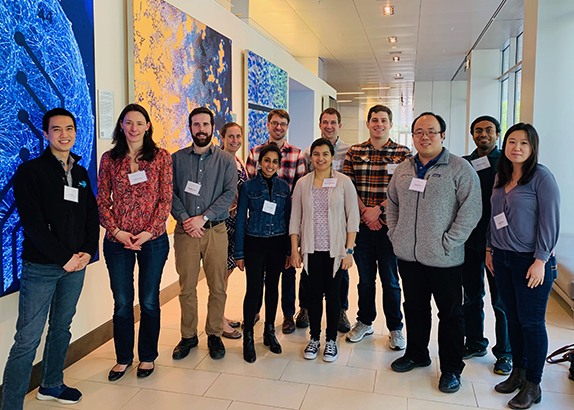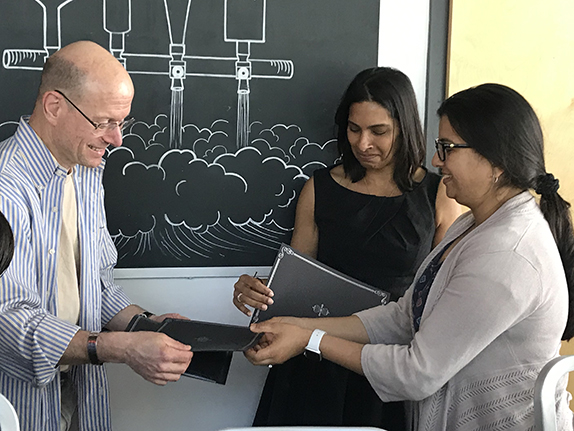Beyond the Bench: Exploring and Communicating Scientific Ideas Effectively
One of the challenges I faced early in my post-doctoral training was balancing my resources to advance my scientific training as a post-doc and simultaneously branching out beyond the bench. Academic research is evolving rapidly, necessitating diverse skills from scientific communication to conflict resolution to mentorship. The emphasis throughout the early training phases is often on asking and answering important and complex scientific questions. The skills needed to transition from managing individual projects to working with and motivating people toward common goals is necessary. However, this is often overlooked in traditional graduate programs. Many of the resources are available for post-doctoral fellows through MIT but are not tailored to individual needs. The Convergence Scholars Program (CSP) was a great fit for me as it was highly customizable and suitable for my early phase of training.
For over ten years, I have focused singularly on a career trajectory that is in alignment with a career in academia. However, it was difficult for me to contextualize the role of an independent scientific investigator within the realm of other disciplines that extend beyond basic research. I study the crosstalk between abnormal nutrient utilization and cell state in cancer. Decades of research suggest that nutrient metabolism is altered in cancers and this aspect of cancer biology holds therapeutic potential. Pushing past the scientific discoveries and promoting the application of the ideas in the translational space is challenging and involves coordination of multiple groups with diverse skillsets. To learn more about this I participated in two opportunities as part of the CSP program: Harvard Catalyst Course "Introduction to Translational Medicine" and Pfizer’s "Oncology Drug Discovery and Development Workshop."

Attending the Industry Networking Panel, with scientists from Sanofi-Genzyme, Rubius, SQZ Biotech, and Ginkgo Bioworks.
I participated in the Harvard Catalyst Course "Introduction to Translational Medicine" for several reasons. I wanted exposure to how scientific discoveries, in the form of targeted therapy or tool development, are communicated to a broad audience. Integration of multiple evolving ideas from diverse groups of individuals is critical for project development and execution. Mentorship, team dynamics, networking, and conveying scientific ideas, integrated within the curriculum of the course, was informative and applicable to any career in research or any senior level management position.
I also participated in the "Oncology Drug Discovery and Development Workshop," where the emphasis was group dynamics and communication to work as a team to carry a drug through development using a simulation-based platform. The multidisciplinary approach to drug development with the help of medical and scientific facilitators, in combination with the Harvard Catalyst Course, gave me a broad perspective on the challenges and opportunities that lie within the realm of human subject research.

Receiving my CSP certificate from Mike Yaffe at our "graduation" lunch.
The CSP program was a positive experience and exposed me to the translational applicability of basic bench research. More broadly, the program taught me diverse skillsets that are essential for working with a team and will support my scientific career.
